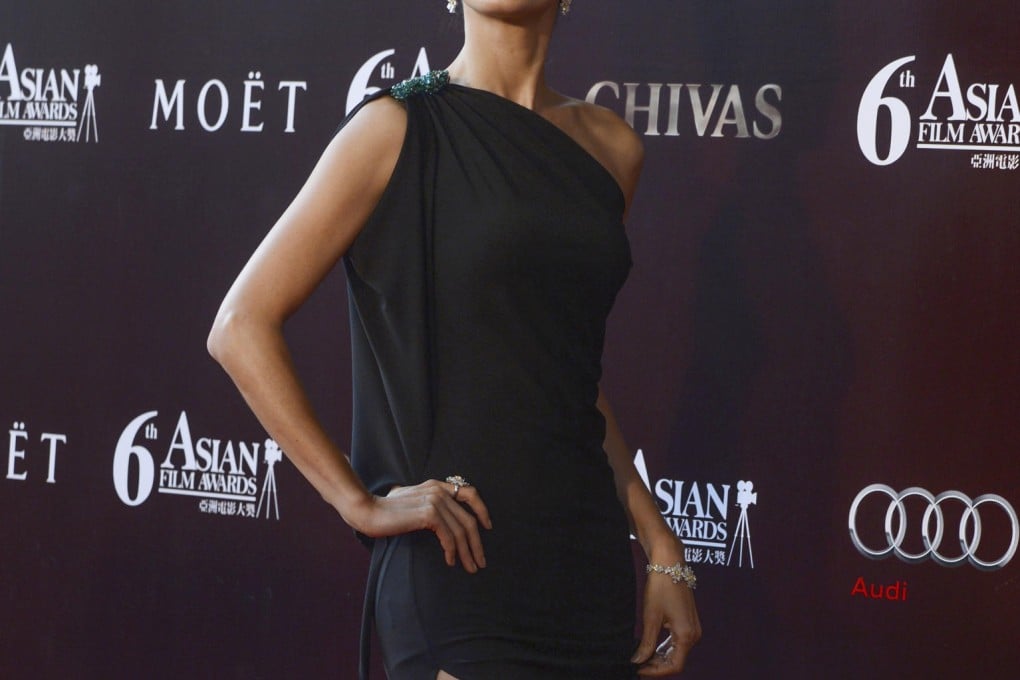My life: Janet Hsieh
The TV host tells David Frazier about her journey from Texas to Taiwan, and to becoming a try-anything type

My mom and dad moved from Taipei to Texas (in the United States) for university, and my grandma moved over shortly afterwards. My sister and I were born in Houston. We travelled a lot as kids, but we never came to Asia. We didn't really know much about our Taiwanese roots except for the language. At home we spoke Taiwanese and English mixed up all together.
I thought I wanted to be a violinist. I loved performing and had an opportunity to perform in the White House and to do a couple of European tours. That was my original life path. But with the violin, you have to focus only on the violin. You have to practise for 10 hours a day, but I preferred to spend 10 hours doing 10 different things. So, in high school, I decided I wanted to do something else, but I was not sure what that was. When I was 16, I volunteered in Ecuador. That was my first taste of doing something by myself, doing something intensive, and living abroad. It was very eye-opening and I loved it. I was vaccinating dogs and cats against rabies. I also had my first contact with medicine and I loved that, too. People who were sick or injured would come in and I would be the person who helped them. I wasn't afraid of blood, or a dog that was misbehaving, or children who didn't want to listen to a medical-care worker.
After I finished college at MIT (the Massachusetts Institute of Technology), I had an opportunity to go to India, to do two months of volunteer work. I chose to go to Jamshedpur. We went from village to village and basically we were there to see what the problems were. For example, there was a town that said their road system was really bad, so they couldn't take their produce to market. We went there and started talking to the families and discovered that out of 10 kids, five were blind or had really bad vision. We realised that the kids weren't eating carrots and getting the right nutrients. That was all they needed, just a few nibbles of a carrot. And they were actually growing carrots there, but the villagers were selling them all. By taking care of the road situation, we could also help the blindness epidemic among the children by making commerce easier. It was a situation where you hate yourself because you feel you are too privileged but, at the same time, you also fall in love with what you're doing.
When I went to Taiwan, I had a six-month internship at Veterans General Hospital and Tianmu Fire Department. Towards the end, somebody asked me to do a commercial. I didn't think much of it until I went back to San Antonio (in Texas) for med school. I had just started orientation and I kept getting phone calls saying, "There is a new commercial. We want to use you. You're confirmed." I wasn't quite ready to give up medical school but I thought to myself, "My MCAT (Medical College Admission Test) scores will hold out for three years", so I gave Taiwan a go. I worked as a model for three years and wasn't very successful. So I started packing up my bags and applied for the Peace Corps, medical schools and everything all at the same time, including the Discovery Channel's Fun Taiwan - and I got the job.
It was my first show, so I had no idea what the process was. I was just excited that I had an opportunity to eat and play and get paid. I was like, "Yes! This is awesome!" I had no expectations for a second season. Now it's been eight years and we've done several series. There's Fun Taiwan, Fun Asia, Go India and Fun Taiwan Challenge. This year we're launching Fun Taiwan: All-Stars. In the Chinese version of Disney's Frozen, I'm the voice of Anna. (American actress Kristen Bell is the voice in the original.)
In Taiwan, my advantage - which I originally thought was my disadvantage - was my inability to speak Mandarin. I was speaking English and Taiwanese mostly, and that was new for the audience. Originally, I was supposed to do the voiceovers (for her TV show) in Mandarin, but my producer realised it was going to take 10 hours to get just one line. So he asked me to do it in English and it was really good. Using English as the main language for the show but then doing all the interviews in Taiwanese was really unique. People also found it surprising that a woman was so willing to do everything. I would jump off waterfalls. I would go scuba diving. I would eat everything - and I don't mean just a little taste; I would really shove food into my mouth. Other women on TV had stylists and were more careful about what they did, but I was just a tomboy. I wanted more physical challenges. I did whatever, and I loved it.